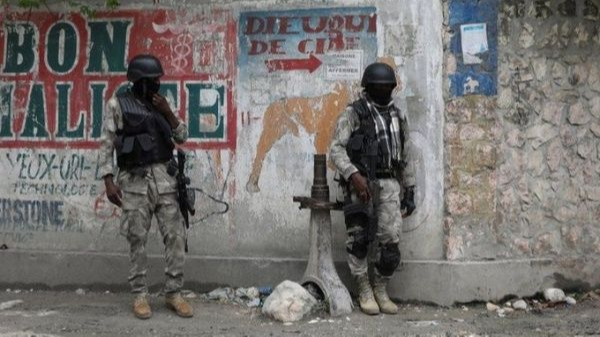Haitians are living through an “alarming” surge in violence, the head of the United Nations Integrated Office in Haiti (BINUH) has said, with the number of criminal incidents more than doubling since last year.
Speaking to the UN Security Council on Wednesday, BINUH chief Maria Isabel Salvador said 1,674 homicides, rapes, kidnappings and lynchings were reported in the first quarter of 2023. That is up from 692 such incidents in the same period a year earlier, said Salvador, citing data collected by BINUH and the Haitian National Police (HNP).
“Gang violence is expanding at an alarming rate in areas previously considered relatively safe in Port-au-Prince and outside the capital,” she said. “The horrific violence in gang-ridden areas, including sexual violence, particularly against women and girls, is emblematic of the terror afflicting much of Haiti’s population.”
\UN Secretary-General Antonio Guterres appointed Salvador to lead BINUH and act as his special representative to Haiti in early March, as the Caribbean nation remains embroiled in a political crisis and faces worsening violence.
Gang violence has been on the rise, particularly after the July 2021 assassination of President Jovenel Moise, which created a power vacuum. And the country’s virtually non-existent government system has made stemming attacks even more difficult.
Haiti’s de facto leader, Prime Minister Ariel Henry, whom Moise chose for the post just days before he was killed, has faced a crisis of legitimacy – and attempts to chart a political transition for Haiti have failed, as well.
The violence has impeded access to healthcare facilities, forced the closure of schools and clinics, and worsened already dire food insecurity by cutting residents of gang-controlled areas off from critical supplies.
On Sunday, the UN’s humanitarian coordinator in Haiti, Ulrika Richardson, said fighting between rival gangs in the Port-au-Prince neighbourhood of Cite Soleil had left nearly 70 people dead between April 14 and 19.
“The population feels under siege. They can no longer leave their homes for fear of gun violence and gang terror,” Richardson said.
Also this week, residents of Port-au-Prince lynched suspected gang members and set their bodies on fire in another part of the capital. Images shared online and by news agencies showed a crowd of people standing near a pile of burned human remains in a street.
In a brief statement shared on Facebook on Monday, the Haitian National Police said officers had confiscated weapons from “armed individuals” travelling in a minibus in Canape Vert. “In addition, more than a dozen individuals travelling in this vehicle were unfortunately lynched by members of the population,” the police force said.
On Wednesday, Salvador said the HNP was “severely understaffed and ill-equipped” to address the violence, and “deaths, dismissals and increased resignations” among officers have made these deficiencies worse.
“The need for urgent international support to the police to address the rapidly deteriorating security situation cannot be over-emphasised,” she said. Last October, Henry called on the international community to help set up a “specialised armed force” to quell the violence in Haiti, a demand that has the backing of the UN and the United States.
“Solutions to the crisis must be owned and led by the people of Haiti, but the scale of the problems is such that they require the international community’s immediate response and support,” Guterres said in a report (PDF) this month, reiterating his support for the armed force.


